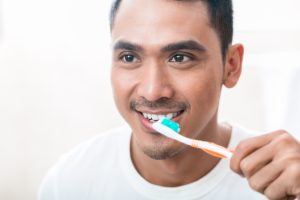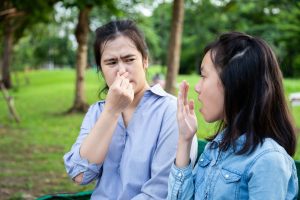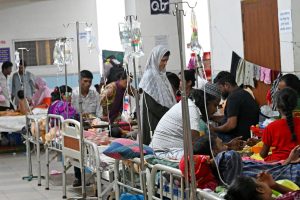Hair loss is one of the major problems faced by women of all age groups. Most young women experience hair loss as strands of hair coming off from the head. But as you age, this pattern varies. Hair slowly starts thinning, which leaves you with a totally different look.
On average, a healthy woman loses 50 to 100 strands of hair a day. Your day to day activities like washing, shampooing, combing, and brushing can all result in hair fall. But the hair fall is not noticeable as new hair grows in place of the old ones. But when new hair does not replace the old hair or when the replacement rate is lower, hair loss is said to occur.
Hair loss pattern among women in Asia varies from country to country. The reason could be due to various factors like lifestyle, the extent of pollution and diet.
PSA: Medical Channel Asia (MCA) is now on Telegram! Join us here https://t.me/MedicalChannelAsia for daily reads and the latest updates at your fingertips!
What Are the Main Causes of Hair Loss?
1. Hereditary
For most women, the hair starts thinning as they age. Hereditary factors play an active role in this. This condition is called androgenic alopecia. In this condition, the hair starts thinning around the crown and is mostly experienced after menopause. This type of hair loss is permanent and cannot be reversed. If your mother or grandmother has experienced thinning hair, you are more likely to experience the same.
2. Hormonal changes
Women go through a lot of hormonal changes during their life e.g. during pregnancy, childbirth, and menopause. Taking birth control pills can also upset the hormonal balance in the body. The fluctuations in estrogen and progesterone levels in the body will result in hair loss. This is usually temporary.
Polycystic Ovarian Syndrome (PCOS) can also cause loss of hair through hormonal changes. In PCOS, overproduction of androgens (male hormones) can block or shrink the hair follicles, causing affected hair to become thinner, shorter and lighter until it is finally not produced at all. Appropriate treatment can help to stimulate growth of new hair.
3. Autoimmune condition
Some people suffer from an auto-immune condition in which the body’s immune system attacks the hair follicles, thereby causing hair fall. This is called alopecia areata. Those who suffer from this condition experience hair loss from the scalp, eyebrows, and eyelashes. Some conditions that can result in alopecia areata are seborrheic dermatitis, psoriasis, even non-dermatological conditions like thyroid disease.
Although there is no permanent cure for alopecia areata, there are ways to circumvent the body’s auto immune reaction in the scalp and encourage hair regrowth.
4. Medication and treatment
Some types of medication and treatment can also result in hair loss. Some medicines prescribed for depression, heart problems e.g. cholesterol-lowering drugs and blood thinners can result in hair fall. If you feel that any particular medicine is causing you to lose your hair, you should consult your doctor. They might lower the dose or prescribe another medication where appropriate, for your condition.
Similarly, radiation and chemotherapy can also result in hair loss, which also includes eyelashes, eyebrows and body hair. This is called anagen effluvium. Normally, each hair follicle cycles between growth and rest. Majority of hair follicles are in the growth phase (anagen) at any given time; when a hair follicle transits to resting phase (telogen), the hair is then shed. In anagen effluvium however, the hair is shed during the anagen phase. This condition is temporary, and the hair grows back once the treatment is over.
5. Stress
Stress-induced hair loss is also known as telogen effluvium. Stress disrupts normal cycling of hair follicles. Stress pushes more hair follicles (from the norm of 5-10% to 30%) into the telogen phase, resulting in hair loss. Prolonged day-to-day stress related to personal matters or work pressure can cause women to lose hair as well. If you have experienced any tragedy or shocking event in your life, it could also lead you to lose your hair. Fortunately, this type of hair loss is also temporary as the hair grows back once you overcome the stress.
6. Hairstyling and Treatment
If your hair gets pulled as part of hairstyling, it can result in loss of hair. This condition is called traction alopecia. Hairstyles that can weaken hair and cause traction alopecia include extensions, cornrows and braids.
Frequent use of heat tools like hair dryers and straightening irons, or harsh chemicals in dyes and perms, can cause hair to become dry, brittle and prone to falling off. Different forms of hair treatment like smoothening and keratin also make use of harsh chemicals which can interfere with the hair’s natural composition and result in hair loss.
7. Nutritional deficiency
A well-balanced diet is required for the hair to grow naturally. If your diet is low in protein or lacks certain vitamins and minerals e.g. iron or zinc, it can result in hair loss. If you suspect a nutritional deficiency, you should get a blood test done. Based on the result, the doctor might prescribe supplements that help the hair to grow back.
8. Infection
Fungal infections, like ringworm infections, can also result in hair loss in women. The main symptoms of ringworm infection are small spots and ring-like patches on the scalp, oozing blisters, and brittle hair. If you suspect a ringworm infection, you should consult a doctor without delay. The doctor will prescribe medicine that can treat the condition. Once treated, your hair loss problem can be solved to a great extent.
Final Thought
The causes of hair loss in women are many and varied. While some are permanent, some are not and can be reversed. If you suffer from unusual hair loss at any stage in your life, seek medical attention to determine the cause and take appropriate measures to control the loss.












